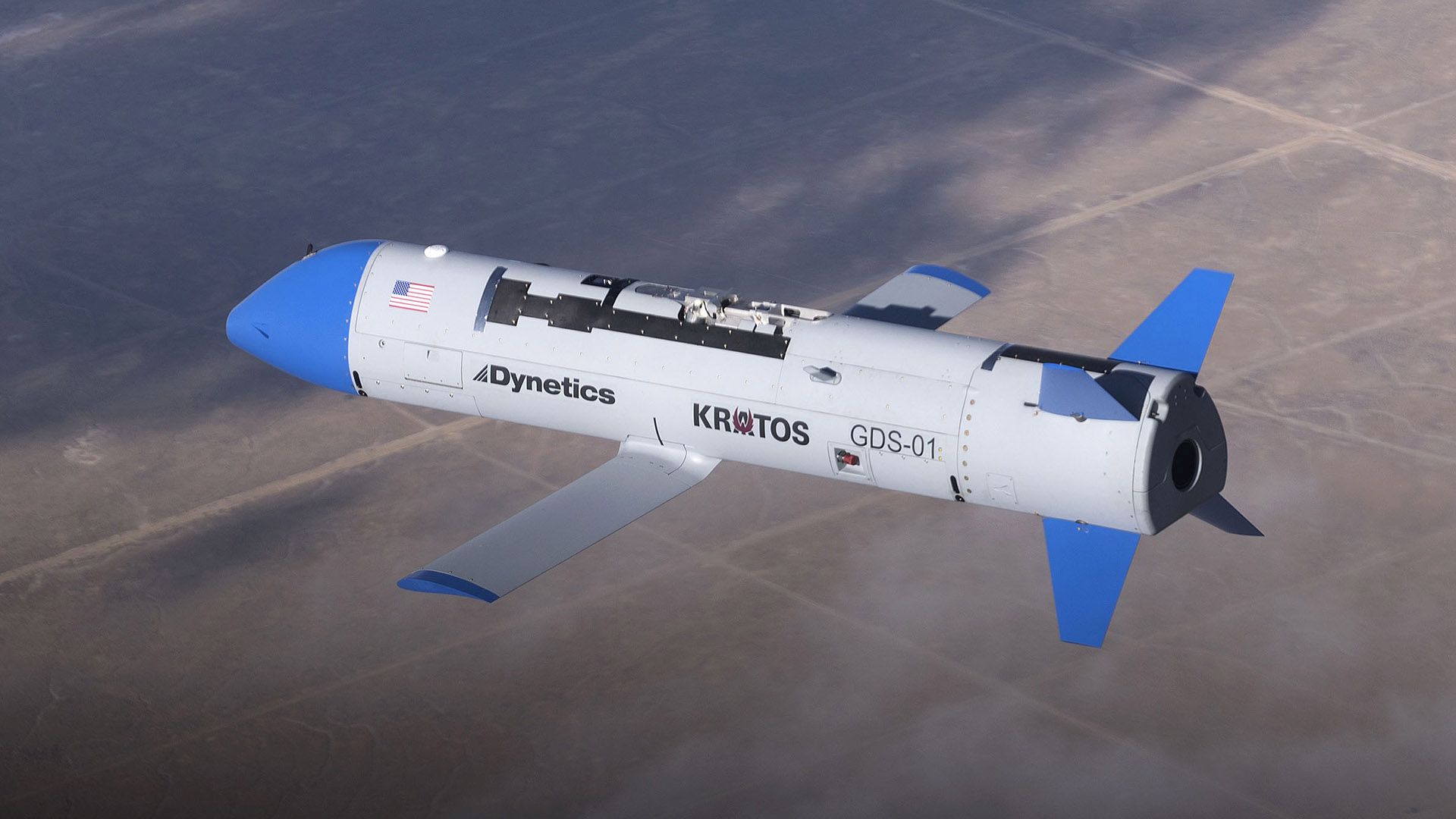After meeting several primary objectives during risk reduction flights at the U.S. Army’s Dugway Proving Ground in Utah in late July, DARPA’s Gremlins program now is targeting additional tests of its X-61A vehicle later this year. The program seeks to develop and demonstrate air launch and air recovery of up to four unmanned aerial systems (UASs), known as Gremlins Air Vehicles (or just Gremlins), within 30 minutes.
Over several days in July, the technology development team completed multiple flight tests of the Gremlins air-vehicle ground and recovery systems, including demonstration of a recovery system safely retrieving and stowing the air vehicles.
The team also conducted a controlled launch of a Gremlin flying for more than two hours and performed rendezvous and autonomous formation station-keeping between the air vehicle and a C-130 at a separation of 125 feet.
The July flights follow the program’s first flight test in November 2019, during which the program completed one captive-carry mission, and an airborne launch and free flight lasting more than 90 minutes.
“The air vehicle performed beautifully from launch through mission modes, and the consistency between the flight tests in November and July increases confidence in the X-61A,” said Scott Wierzbanowski, the Gremlins program manager in DARPA’s Tactical Technology Office.
“However, we made a decision to delay the first air recovery attempt and instead focus on key risk reduction activities to better ensure a smooth air recovery test later this year.”
The program now calls for flight tests to resume in October with the key objective to recover first one, and then two, air vehicles in the same flight. By the end of the year, the program aims to complete the test series, culminating with airborne recovery of four Gremlins within 30 minutes.
This final demonstration will showcase the capability of safe, effective, and efficient air recoveries, opening the way to dramatically expand the application and utility of attritable UASs.
Mission flexibility and affordability are the key attributes of the Gremlins system, which would launch groups of UASs from multiple types of military aircraft while the latter remain beyond the range of adversary defenses.
The Gremlins program is using a C-130 as the demonstration platform, but the recovery system is designed to be easily modified and compatible with a wide array of transport aircraft and weapons systems. Once Gremlins complete their missions, the transport aircraft would retrieve them in the air and carry them home, where ground crews could prepare them for their next use within 24 hours.
Gremlins can incorporate several types of sensors weighing up to 150 pounds, and integrate technologies to accommodate different stakeholders and missions.











